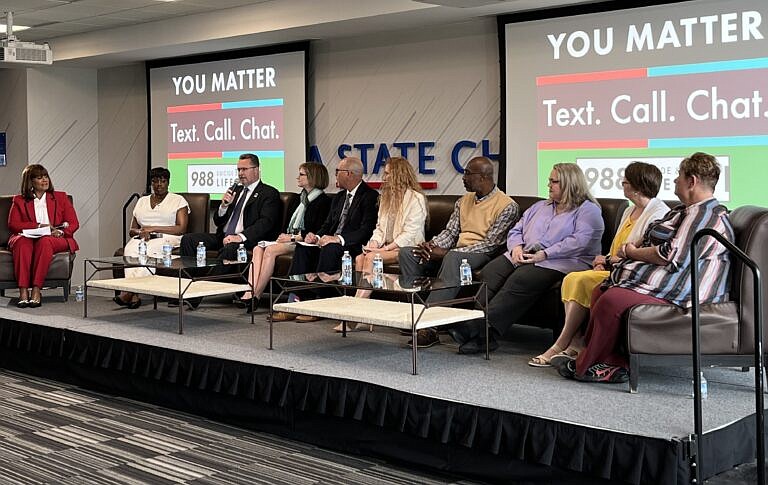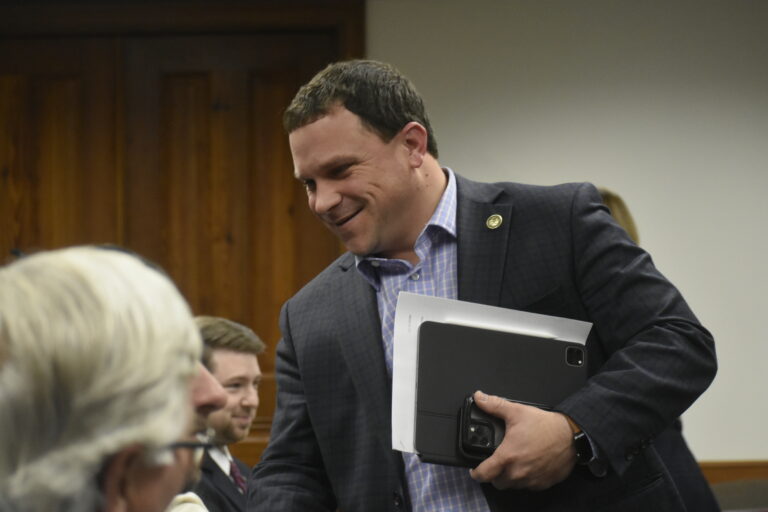Georgians living in rural communities continue to call into the national suicide prevention hotline at higher rates than other parts of the state as the one-year anniversary of the rollout of 988 approaches.
But there's another alarming statistic causing concern in recent years about Georgia's rural areas: The suicide rate increased even as the overall rate declined.
"We know the challenge in rural Georgia — and across really rural America — is a lack of access," said Kevin Tanner, commissioner of the state Department of Behavioral Health and Developmental Disabilities.
"Many parts of our state are having to drive well over an hour to access care and services. We also know that stigma is much higher in rural parts of our state," he said.
Tanner, a former Republican lawmaker who became commissioner late last year, called 988 a "catalyst" for reducing stigma. This July will mark the one-year anniversary of the national three-digit dialing code's launch.
Georgia has an advantage over other states that are building call intake centers from scratch. The Georgia Crisis and Access Line, where 988 calls go, was established in the wake of Hurricane Katrina in 2005 to assist evacuees.
The state is also seen as a leader when it comes to its mobile crisis program, which sends trained mental health professionals out across the state. The Substance Abuse and Mental Health Services Administration, the federal agency overseeing 988, held a town hall event in downtown Atlanta on Friday to spotlight Georgia, holding it up as a model.
"This state is a star, and this state is one that should be lifted up as an example — and it already is," Monica Johnson, director of the federal 988 and Behavioral Health Crisis Coordinating Office, said at the event.
But the attention comes as the state agency responsible for the crisis call center was dealt a setback earlier this month when Gov. Brian Kemp rejected a $2.3 million funding increase for additional support to manage the ongoing rollout. Kemp also nixed extra salary bumps for mental health professionals.
Those cuts were part of a long list of line items in the budget that Kemp struck down across several agencies as concerns about future state revenues grow. Revenues dropped 16.5% last month, but overall tax collections remained up slightly — 0.9% — for the year.
"Call volume has not increased to a level requiring additional administrative support over existing levels," Kemp wrote.
Other funding increases for 988 survived, including the $6.2 million the governor originally proposed for mobile crisis teams that are part of the services someone who calls the hotline may receive.
The calls to Georgia's crisis center have increased by about 12%. But a federal estimate projects those calls will double once the new three-digit number is promoted through a marketing campaign, which is coming later.
"There's some folks who may be skeptical of those numbers," Tanner told reporters Friday. "We want to be very careful that we lay out a very clear, distinct plan about what we expect to see in Georgia, and we don't just base it on maybe national data."
(READ MORE: National mental health 988 crisis hotline sees boost in calls from Tennessee)
To test what effect intensive marketing may have on call volume in Georgia, Tanner said his agency is planning a monthlong marketing campaign this summer in two mid-sized communities. The results may help justify future budget requests, he said.
Harper: 'It takes care of the rest of us as well'
Things aren't getting any easier in rural communities, particularly for farmers.
Inflation has made already rising input costs higher, causing ag producers to spend more to earn less as they put in long hours at tasks that often risk physical injuries. And their income depends on the whims of the market, crop-killing diseases and pests, and, of course, the weather. Just recently, a late freeze devastated Georgia peach crops.
But seeking help to deal with stress does not tend to come naturally in a profession where farmers are hard-wired to be self-sufficient, said Agriculture Commissioner Tyler Harper.
"They go to work every day with one thing in mind and focus on doing the job that they feel they've been called to do, and they do a phenomenal job at it," Harper, who is also a farmer, said in an interview as part of mental health awareness month.
"But at the same time, I think — as those of us in this arena — that's part of our weakness, too," he said. "Because whenever we are presented with a problem, we always try to find a way to fix it ourselves first."
Harper, a Republican who was elected commissioner last fall, said he is working to increase his agency's focus on mental health awareness. Harper pointed to a survey that yielded troubling results last year.
(READ MORE: Suicide, crisis hotline bill moves out of Alabama Senate committee, stalls in House)
Nearly 30% of farmers reported thinking of dying by suicide at least once a month, according to the report produced by the Georgia Rural Health Innovation Center at Mercer University School of Medicine.
And 42% of all farmers have thought about dying by suicide at least once in the past 12 months, according to the report.
Among first-generation farmers, 61% said they had thought about dying by suicide in the last year.
"What happens so often is that person bottles up their emotions until they can't do that anymore, and that's what we're seeing in our agricultural community," said Tanner, who owns a poultry farm.
Harper's department has been promoting the hotline and other mental health resources as a way of encouraging farmers to reach out for help.
"By asking for help, you're better able to take care of yourself, you're better able to keep your nose to the grind, you're better able to be self-sustaining and support your family, which in turn takes care of our state and takes care of our economy. It takes care of the rest of us as well," Harper said.
Read more at GeorgiaRecorder.com.
If you or someone you know is struggling or in crisis, help is available. Call or text 988 or chat 988lifeline.org.

